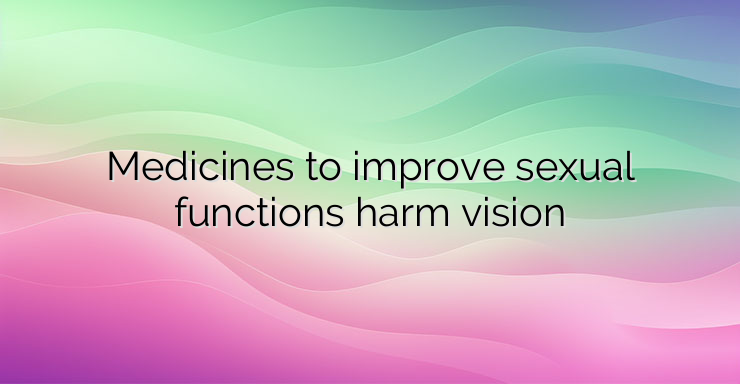Regular use of drugs to improve erectile function among men increases the risk of vision disorders such as retinal detachment, blindness, and others. A study was conducted, led by Prof. Dr. Mahyar Etminan from the University of British Columbia School of Medicine in Vancouver, Canada, which analyzed the impact of different erectile function medications on people’s vision. Prof. Etminan and his team analyzed data on men who were regularly prescribed medication for erectile dysfunction between 2006 and 2020. Among the drugs used was the most famous – Sildenafil, as well as other phosphodiesterase type 5 inhibitors. The average age participants were 65 years of age, and each was prescribed at least one prescription of phosphodiesterase type 5 inhibitors every three months. The study included 213,033 men using medicinal substances to improve sexual function. Among them, 1,146 cases of visual disturbances such as serous retinal detachment, ischemic optic neuropathy and retinal vascular occlusion were diagnosed. After matching the cases with a group of 4,584 control patients who did not use these medications, the researchers observed that the risk in regular users of the erectile dysfunction drugs was twice as high for serous retinal detachment and ischemic optic neuropathy. The one for retinal vascular occlusion was also increased, compared to people not taking the relevant medications. The study also took into account other comorbidities that could affect normal vision, such as hypertension, diabetes, coronary heart disease and sleep apnea. The results obtained from the study are of great importance because phosphodiesterase type 5 inhibitors are among the most commonly prescribed medications in the United States. In 2020, over 20 million monthly prescriptions were issued for these products. The mass distribution of these medicinal substances requires better awareness among patients. With earlier measures taken regarding side effects related to the medication, better results and possible improvement of their condition are expected. The study was published in the journal JAMA Ophthalmology. References: https://www.medscape.com/viewarticle/972271 https://jamanetwork.com/journals/jamaophthalmology/article-abstract/2790661


Leave a Reply